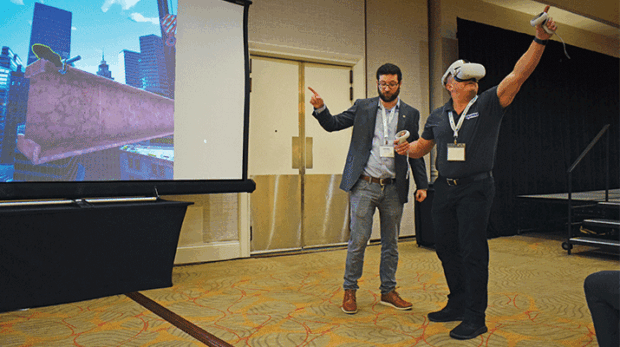Boosting Propane Safety with Virtual Reality

Virtual Reality (VR) is revolutionizing how propane safety training is conducted, offering immersive and interactive experiences that enhance learning and retention for technicians. This article explores how VR is being used to train propane handlers, ensuring they are well-prepared to manage the unique challenges of dealing with this fuel.
Realistic Training Environments
VR technology creates realistic, 3D environments where trainees can practice handling propane in safe, controlled settings. These simulations include a variety of scenarios, from routine operations to emergency response situations. By practicing in lifelike conditions, technicians can gain valuable experience without the risks associated with real propane handling.
Enhanced Engagement and Retention
The immersive nature of VR training increases engagement and helps technicians retain information more effectively. VR training modules are designed to be interactive, which encourages active participation and helps reinforce learning through practice. This hands-on approach is particularly beneficial in understanding complex procedures and safety protocols.
Standardized Training
VR provides a standardized training experience that ensures that all employees receive the same quality of training regardless of location. This consistency is crucial for companies operating in multiple regions, as it guarantees that all technicians are equally prepared and knowledgeable about the latest safety practices.
Immediate Feedback and Assessment
One of the advantages of VR training is the ability to provide immediate feedback. Trainees can learn from their mistakes in real-time and adjust their actions accordingly. Furthermore, VR systems can track performance and generate detailed reports that help identify areas where an individual may need additional training.
Scalability and Accessibility
VR training programs are easily scalable and can be deployed across multiple training centers with minimal additional costs. They are also easily accessible, allowing staff to participate in training sessions from anywhere with VR equipment. This flexibility helps companies save on travel and accommodation costs for training.
Reducing Training Accidents
By using VR, companies can significantly reduce the number of accidents that may occur during training sessions. Since the training takes place in a virtual environment, the risk of physical injury or property damage is virtually eliminated, making it a much safer alternative to traditional methods.
Continuous Improvement
VR technology allows for continuous updates and improvements in training programs. As safety standards evolve and new technologies emerge, VR programs can be updated to include the latest information and techniques. This ensures that the training remains relevant and effective over time.
Transformative Training
Virtual reality is transforming propane safety training by providing realistic, engaging, and effective learning experiences. Its ability to simulate complex scenarios and provide immediate feedback helps prepare technicians for real-world challenges, thereby enhancing both safety and efficiency. As VR technology continues to advance, its role in training and operations in the propane industry is expected to grow, making it an essential tool for any company committed to safety and excellence.













